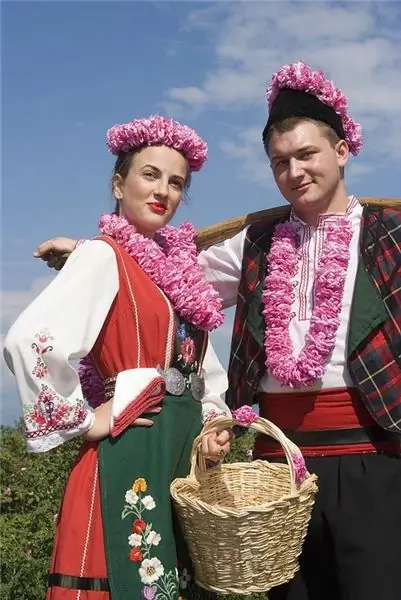
The population of Bulgaria is over 7 million people.
The earliest inhabitants of the Bulgarian lands were the Thracians: they consisted of separate tribes, hostile to each other. Thus, the Serbs occupied territories in the south-west, the Astis, Odris and Bessa in the south, and the Getae, Tribals and Mysians in the north-east and north-west. Slavs and Bulgarians appeared on the Balkan Peninsula at the end of the 5th century. It was thanks to the union of the Slavs and Bulgarians in 681 that a state was formed, which began to be called Bulgaria.
National composition:
- Bulgarians (85%);
- Turks;
- other nations (Armenians, Gypsies, Macedonians, Greeks, Romanians).
On average, 80 people live per 1 sq. Km (in the lowlands), but the most densely populated areas are intermontane basins (population density - 100-120 people per 1 sq. Km), and mountains are less populated (population density - 30 people per 1 sq. Km.) km).
The state language is Bulgarian.
Large cities: Sofia, Varna, Plovdiv, Burgas, Pleven.
The inhabitants of Bulgaria profess Orthodoxy, Islam, Protestantism, Catholicism.
Life span
On average, the inhabitants of Bulgaria live up to 76 years (men - up to 70, and women - up to 77 years).
The health of the inhabitants of Bulgaria is guarded by a healthy diet, healthy air, mud therapy (with its help, cardiovascular, gynecological, diseases of the musculoskeletal system are treated).
Herbal medicine is widespread in Bulgaria: herbal pharmacies and drogeries are open here, where locals and tourists can buy herbs and herbal teas.
Traditions and customs of the inhabitants of Bulgaria
Bulgarians are friendly and open people, and not only in relation to relatives and neighbors, but also to complete strangers.
Bulgarians love to celebrate holidays, which are bright and enchanting here with a large number of participants. For example, during the New Year's carnival, masks in masks walk the streets of cities, who gather in the squares in the evening (from evening to early morning, walks with songs and dances are organized).
The Bulgarian wedding deserves special attention, which is accompanied by lavish festivities, national rituals, songs, games and dances, and men's wrestling. According to tradition, on the night before the wedding ceremony, one of the guests must steal a rooster from the bride's yard to bring it to the registry office (the rooster is a symbol of fertility, prosperity and good luck in the future family). It is customary to welcome young people with bread and salt, wine and honey - this is done so that their life is friendly and rich.
In order to gain health, the Bulgarians conduct an interesting mystical rite (nestinarstvo): first, a large fire is kindled, and when it burns out, barefoot people alternately begin to dance on the coals, and none of them is burnt.
If you happen to communicate with a Bulgarian, know that if he nods, it means that he expresses his disagreement, and if he shakes his head from side to side, then he agrees with you.






